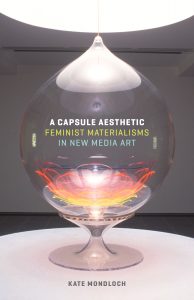We are excited to announce that next year’s 2022-23 NMCC ANNUAL LECTURE will be presented by Dr. Autumn Womack of Princeton University on October 27, 2022. The title of her talk will be “Unruly Matters: Data, Blackness, and Aesthetics at the Turn of the Twentieth Century.”
The talk will take up themes from Dr. Womack’s new book The Matter of Black Living: The Aesthetic Experiment of Racial Data, 1880–1930. The book traces a genealogy of media of racial datafication at the turn of the twentieth century to discern forms, assumptions, and “data crises” that we are all aware are still with us today. Womack’s archival range extends from W.E.B. Du Bois’s social surveys to Zora Neale Hurston’s engagements with film and takes up as well as a number of other literary and photographic interventions.
Simone Browne (Department of African and African Diaspora Studies at the University of Texas at Austin and author of Dark Matters: On the Surveillance of Blackness) writes that Womack’s book “calls for an urgent rethinking of the information technologies, data regimes and disciplinary measures employed to enumerate black social life,” such that “The Matter of Black Living reveals the ruptures and possibilities of black creative innovation. A brilliant read.” In that tone, save the date now and come join us in Fall for what will be a brilliant lecture.
 Dr. Autumn Womack is Assistant Professor of English and African American Studies at Princeton University, and earned her Ph.D. in English and Comparative Literature at Columbia University (find more here).
Dr. Autumn Womack is Assistant Professor of English and African American Studies at Princeton University, and earned her Ph.D. in English and Comparative Literature at Columbia University (find more here).
This year’s NMCC Lecture is sponsored by NMCC, the Oregon Humanities Center, the Department of Indigenous, Race, & Ethnic Studies, the Department of Comparative Literature, the Department of Philosophy, and the Department of English.
Additionally, there will be a workshop for graduate students on the topic of “Black Archives: Theory and Practice.” The workshop is scheduled for Friday, Oct. 28th at 10:00 AM in the Knight Library Dream Lab. Register now at: https://bit.ly/BlackArchivesWorkshop
TALK + RECEPTION DETAILS:

Thursday, October 27th, 2022
Knight Library Browsing Room
2:00 – 4:00 PM
WORKSHOP DETAILS:

Friday, October 28th, 2022
Knight Library DREAM Lab (1st floor)
10:00 – 11:30 AM
Register now at: https://bit.ly/BlackArchivesWorkshop




